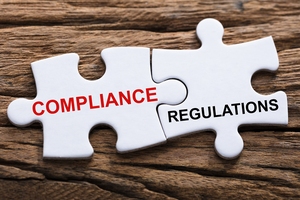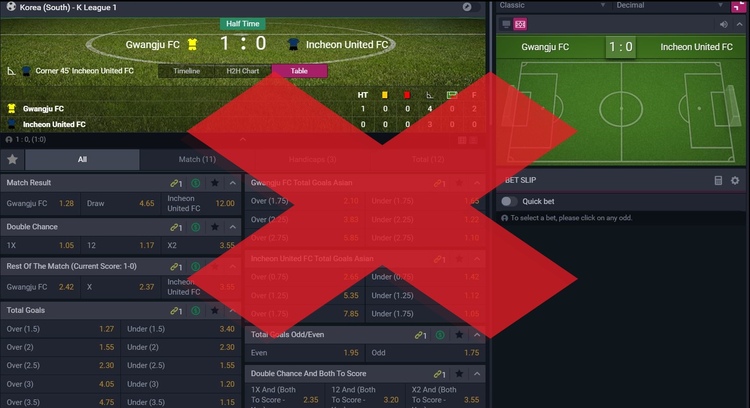If you don’t recognise the acronym, it stands for the Gambling Related
Harm All Party Parliamentary Group, and they have been reviewing the gambling industry for the past 12 months and the final report is in.
It calls for some pretty big changes to be made across the whole industry and, if implemented, could change the face of online betting as we know it.
On the hit list are in play betting, online stake limits, VIP and loyalty schemes, and advertising. Not only that, the APPG have taken shots at the UK Gambling Commission itself.
Who are the APPG?

Glad you asked.
The organisation is a group of 50 prominent parliamentarians (say that quickly 10 times) who are concerned about the industry and gambling related harm.
They are not an official governmental body and have no legislative power, but they have a voice and a platform as well as easy access to those in government.
An APPG can be formed over any issue, it just requires those involved to share a common view or to support the same cause. They can then work together, despite being from different political parties, to try and tackle these issues.
In essence it is no different to me and you getting together with 48 others and trying to get a law changed, except these guys are already MPs.
Recommended Changes

From reading their final report, the APPG are suggesting over 30 changes to be made.
These cover subjects big and small and some would be easier to implement than others.
Some of the biggest are:
- Stake limits for online slot content of no higher than £2 given the potential to cause harm.
- A ban on all VIP schemes and inducements.
- A ban on in play betting online.
- A ban on all gambling advertising.
- A complete overhaul of gambling regulation in the UK. The Gambling Commission, in their view, is “not fit for purpose”.
- An urgent review of stakes, deposit and prize limits online as well as a complete review and classification of online products.
- Affordability limits set and imposed by the Gambling Commission.
- A Gambling Ombudsman for consumer redress.
- A mandatory ‘smart’ levy paid by gambling operators to fund independent research, education, prevention and treatment.
- A new Gambling Act fit for the digital age.
In play betting would still be allowed in venues and over the phone which is how it works in Australia, but VIP schemes would be almost unrecognisable.
 The issue with VIP schemes is that, according to the report, those gambling enough to get onto them are much more likely to have addiction issues; one company reportedly took 83% of deposits from just 2% of its customers who were in the VIP scheme.
The issue with VIP schemes is that, according to the report, those gambling enough to get onto them are much more likely to have addiction issues; one company reportedly took 83% of deposits from just 2% of its customers who were in the VIP scheme.
Speaking of the £2 maximum stake limits, Kenny Alexander of GVC Holdings wrote in his blog:
“I don’t doubt for one minute their genuine desire to help solve the problem, but such measures would actually only serve to exacerbate the issue”
His reasoning being that it would force those wanting to bet more onto unregulated offshore betting sites.
The banning of reverse withdrawals was another suggestion, and something that some comapnies – GVC among them – have already implemented during lockdown. The APPG wants this made permanent across the board.
To be honest, that’s one change that I can definitely get on board with.
UKGC “Not Fit For Purpose”

This is a bold statement given that the UKGC is the official regulating body put in place by the UK government, but it is not the first time the APPG have said it.
They have consistently criticised the UKGC since their formation, and are calling for it to be reviewed urgently. The report even went as far as to say that the CEO, Neil McArthur:
“was unable to answer even the most basic of
questions about the work of his organisation.”
They also claim that the commission is being outrun by the industry, and that it has not adapted to technological changes.
However, they did concede that the governing body is “constrained by factors
outside its control, including inflexible funding and a lack of evidence on how
developments in the industry affect consumers”.
The UKGC has an annual budget of just £19 million, and are tasked with regulating an industry worth billions.
The Outcome
 As for whether or not this final report will have an impact and cause changes to be made, only time will tell, but there is certainly an appetite for stricter rules amongst those in power and among the general public.
As for whether or not this final report will have an impact and cause changes to be made, only time will tell, but there is certainly an appetite for stricter rules amongst those in power and among the general public.
They do have a point too. Over the ten years from 2009 – 2019 the gambling industry grew by 57%, and the online gambling yield over the same period jumped from £1 billion to £5.3 billion. In 2018/19 the gross gambling yield for betting companies was £11.3 billion.
This certainly tells a story, and with an estimated 395,000 problem gamblers in the UK changes undeniably need to be made, but is denying those people that can control their gambling in order to shield those that can’t the right thing to do?
It’s a difficult question, and in my mind we haven’t found the answer just yet.

